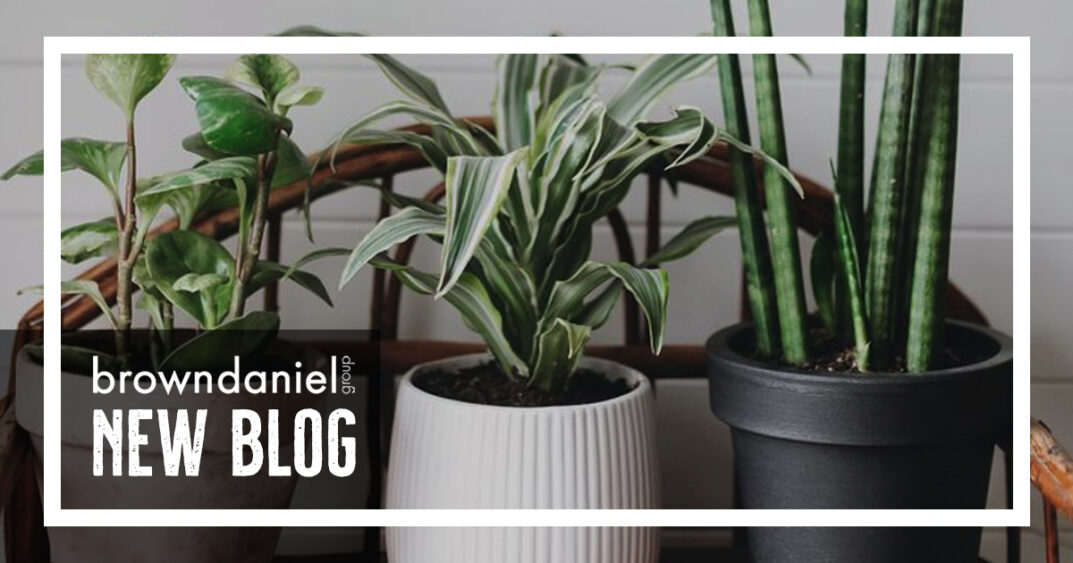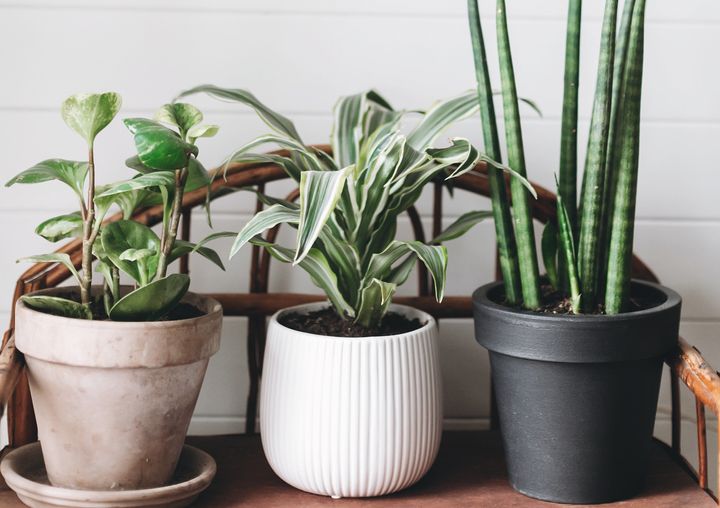
Filling your home with attractive houseplants isn’t just good for the aesthetics of your home. Trying your hand at growing an indoor garden can also help you increase oxygen levels throughout your home and purify the air you breathe. Improving your home’s oxygen levels is a good idea for your family’s health and wellness all the time, it can be especially helpful for anyone who struggles to get a good night’s sleep every now and again. Research has shown that there are specific plant varieties that can practically eat up dangerous chemicals while releasing life-giving oxygen, but that’s not their only super power. Indoor plants are excellent mood boosters and stress relievers, and dealing with less stress is an important ingredient for getting a good night’s sleep. In some cases, these plants can even mimic prescription sleeping pills when it comes to inducing sleep and preventing repeated awakenings while you slumber. So grab a pot (or two or three), or perhaps a decorative hanging basket and try some of these plant’s to achieve more restless sleep.
Peace Lily
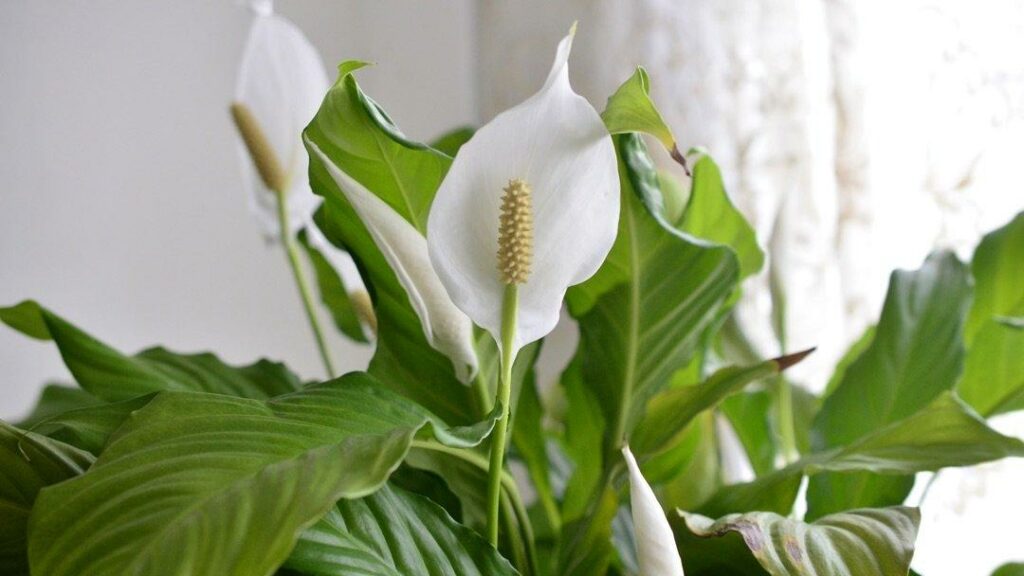
The peace lily is usually thought of only around the Easter season, or on a more somber note, as a standard plant given when someone experiences a death in the family. While peace lilies are an inspirational and comforting funeral staple, there’s no reason they can’t also be a happy, all season house plant. Peace lilies are known to remove formaldehyde and benzene from the air, while also releasing moisture and thereby increasing a room’s humidity. If you tend to need a humidifier in your room to sleep soundly at night, a peace lily may render your beloved humidifier obsolete, and allow you to do away with the humming noise most of these appliances are guilty of.
Peace lilies are also relatively low maintenance. While they do need a generous amount of bright, direct light, they are more than happy with the artificial variety. In fact, too much real sunlight can cause them to wilt. Keep these plants out of reach of young children and pets, due to their toxicity. But if you keep their soil moist, and give them a moderate amount of room light, peace lilies will live up to their name as they bring you a peaceful night’s sleep.
Lavender
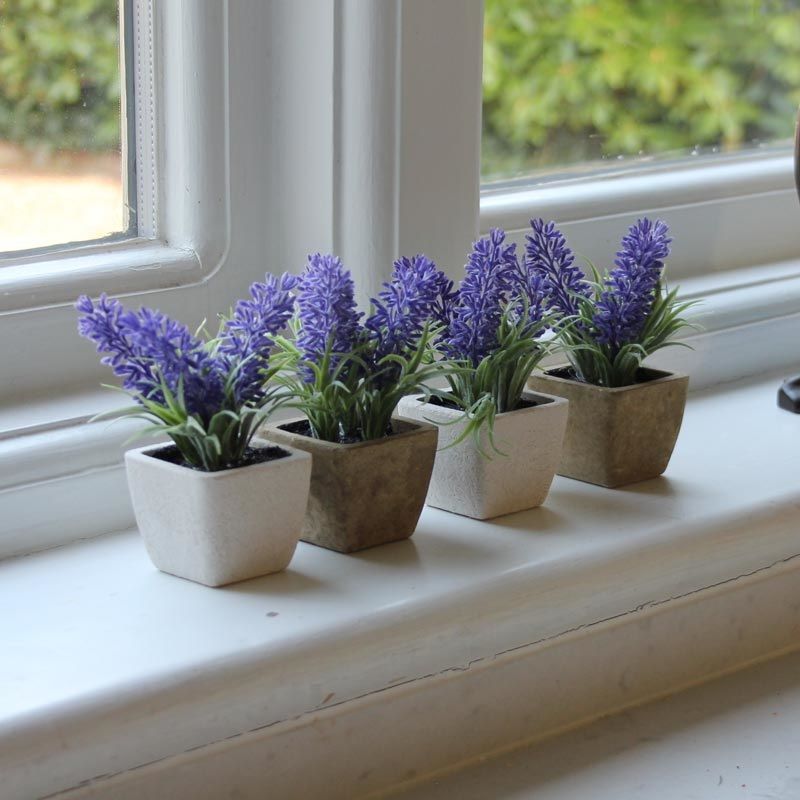
Lavender is commonly known to be excellent for stress relief and a great inducer of sleep. However, most of us only know it as an essential oil for the diffuser or a pleasant scent in lotions and room sprays. The extracts of the lavender plant are not the only way for you to enjoy the benefits – you can also go straight to the source and keep a lavender plant in your bedroom. The sweet scent of lavender is known for promoting relaxation, lowering stress levels, and aiding in the slow drift toward sleep, so keep a small potted lavender plant on your nightstand and let the fragrance waft all around your bedroom. Lavender plants are also a great addition to nurseries and children’s bedrooms, as studies have shown just the presence of a lavender plant lowers night time wake-ups and crying at bedtime in infants.
Gardenia
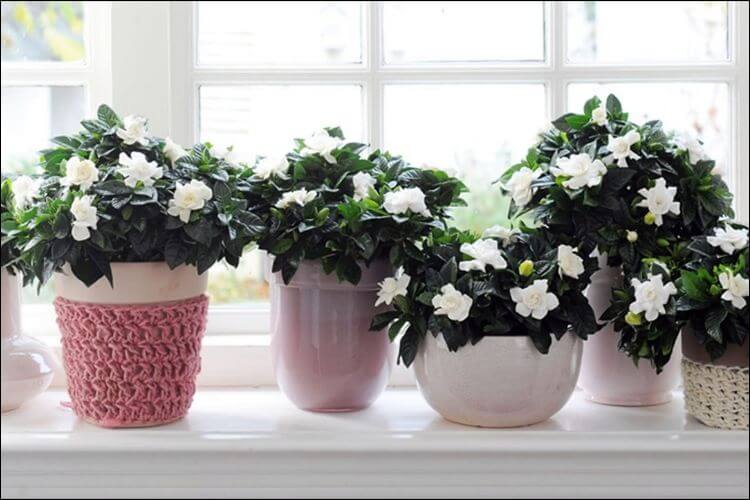
Lavender isn’t the only plant known for both pretty flowers and sleep-inducing capabilities. The gardenia has gorgeous blooms that look as good as they smell, and as a bonus, they act as a natural sedative. Gardenia flowers have been shown in studies to be just as effective as valium at reducing anxiety and inducing sleep, even in insomniacs. So, if you are looking for a natural alternative to traditional sleeping aids, consider inviting a gardenia in to share your bedroom. As far as care goes, gardenias can be delicate, and they may work best for experienced gardeners. They need bright sun and high humidity, though the sunlight does not have to be direct. If petals or leaves seem droopy, spray them with a little water.
Gerbera Daisy
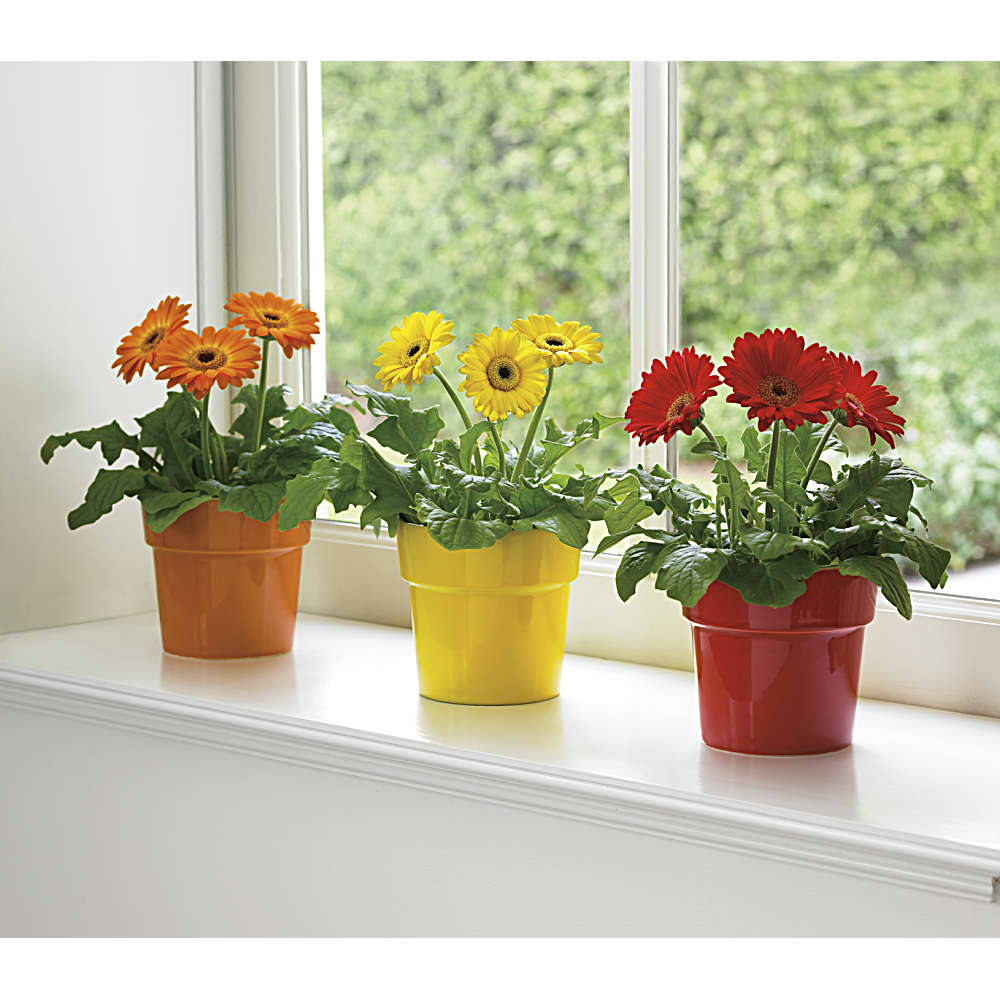
The brightly colored blooms of the gerbera daisy add a cheerful pop of color to any room, with shades ranging from pink to orange to yellow. This flower is valuable for a lot more than just it’s good looks though. These colorful air purifiers pull toxins from your bedroom as you sleep and release oxygen, and have been found to be especially beneficial to those suffering from sleep apnea. Unlike many of the other plants on this list, gerbera daisies are annual plants, so they last only for a year at a time. They can also be a little bit fussy when it comes to care, so this might be a plant best suited for those of you who already have green thumbs. Your daisy plant will appreciate large amounts of bright sunlight and frequent waterings that thoroughly soak their soil
Jasmine
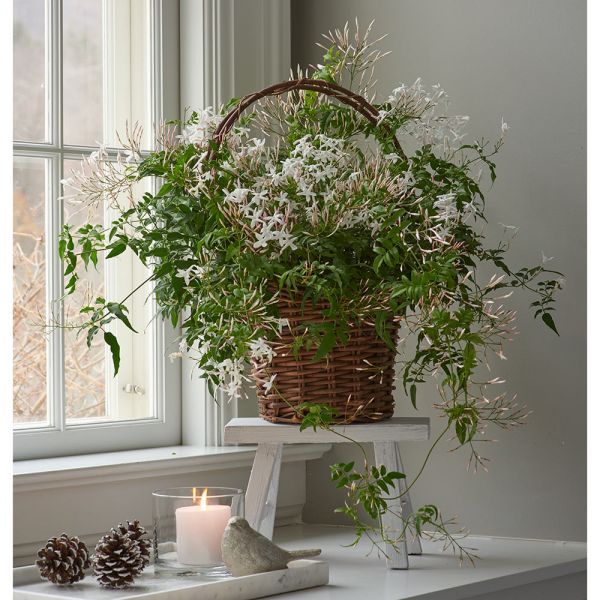
You may recognize the scent of jasmine from some of your favorite personal care products, such as perfumes and lotions. The sweet aroma is a favorite of many, and so are the delicate blossoms. But jasmine isn’t just another pretty face – it can help lull you to sleep as well. Studies have found that jasmine’s scent can lead to more restful sleep while also decreasing anxiety and increasing mental performance. A potted jasmine will look gorgeous on your windowsill, which is the ideal spot for it because this plant does need a good bit of direct sunlight in order to thrive.
Spider Plant
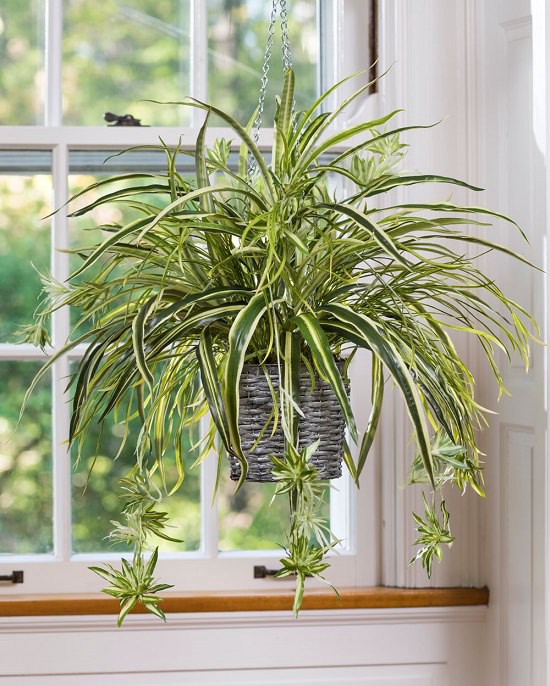
The spider plant is another super hero plant that cleans the air by removing formaldehyde and other chemicals often found in common household products. They increase the levels of oxygen in the air while filtering out these toxins to help you breathe easier in the evening. Specific chemicals spider plants absorb include benzene, carbon monoxide and xylene. Even better, spider plants have the awesome ability to fight lingering indoor odors, another annoyance that can interrupt your sleep.
English Ivy

English ivy is an incredibly easy plant to take care of so it already makes a wonderful houseplant. It has many other benefits though, such as English ivy’s ability to take in airborne chemicals and rid the air of toxins that can be harmful to humans. In fact, in their Clean Air Study, NASA found that English ivy is one of the best pants you can keep in your home for fighting airborne pollutants and improving the quality of indoor air. This can help you sleep by alleviating allergy symptoms, asthma and sinus issues, and making you less likely to snore. English ivy doesn’t need much light to thrive, so it is a perfect bedroom plant, even those with very little natural light. It can be toxic to pets though, so consider placing it in an out-of-reach hanging basket in the corner of your room.
Aloe Vera
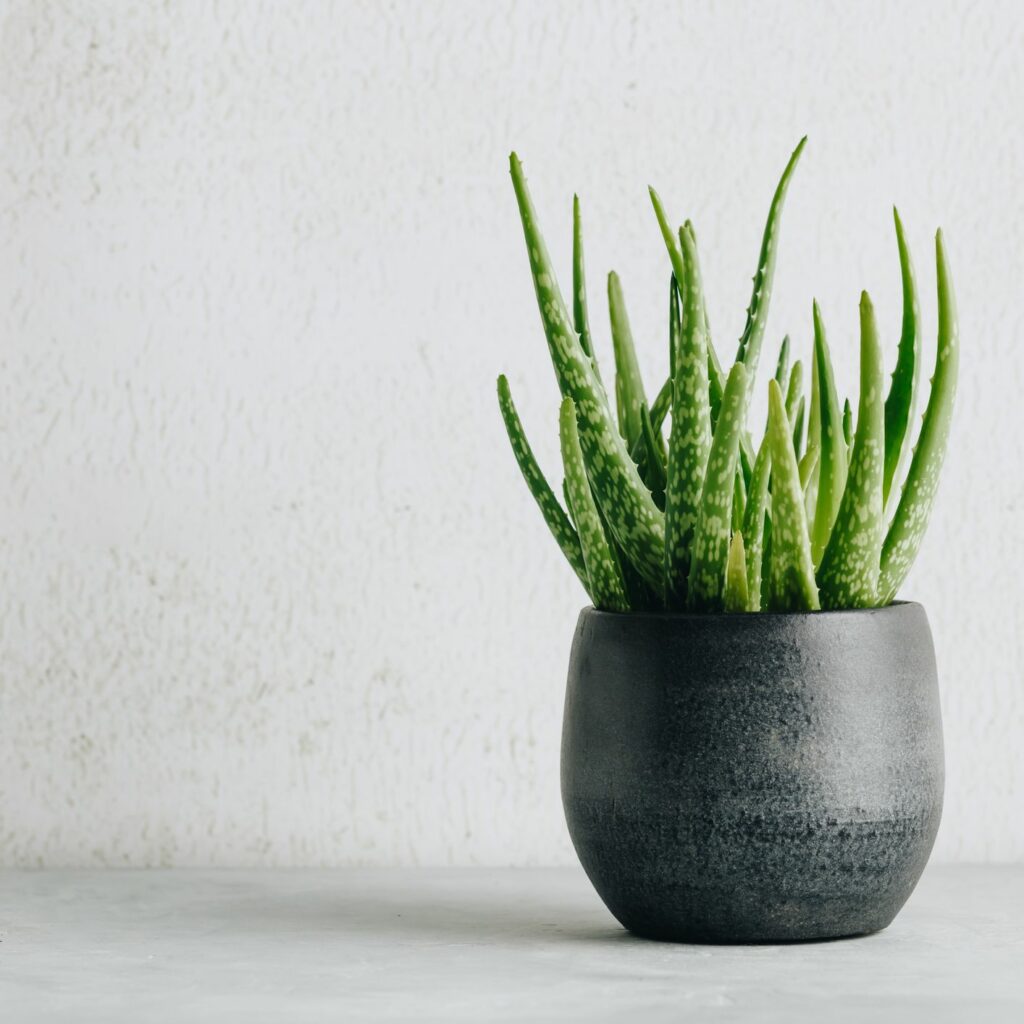
Aloe vera is one of nature’s most healing plants. In fact, the ancient Egyptians even called aloe vera “the plant of immortality.” Most people are aware that aloe’s gel can bring fast relief to sunburns and small kitchen burns along with minor cuts and abrasions. The aloe plant shouldn’t just be relegated to your kitchen though. While many plants release oxygen during the day and carbon dioxide at night, the aloe vera plant release it’s oxygen during the evening hours, making it the ideal plant to keep in your bedroom for air purification. It also reduces levels of benzene in the air, a harmful chemical found in many commercial cleaning products. In addition, this succulent is very easy to care for. Aloe enjoys a period of direct sunlight either in the morning or afternoon, but only need to be watered after prolonged periods of completely dry soil. Check this by giving a leaf a gentle squeeze – if it is firm, no water is needed at the moment. If the leaf is slightly pliable, your plant could use a drink.
Snake Plant
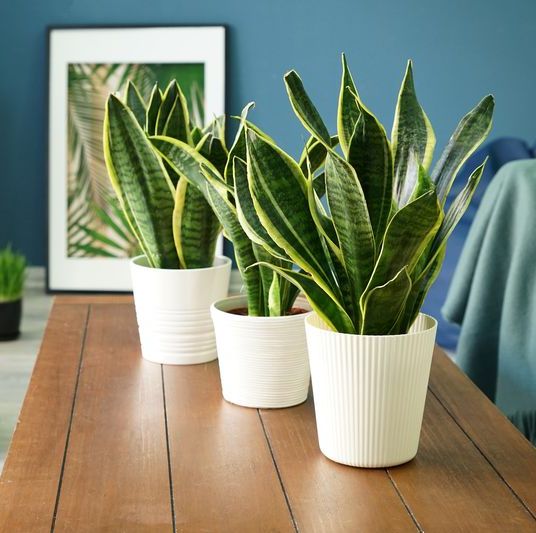
The snake plant, which is also nicknamed “mother-in-law’s tongue,” is another helpful plant that releases oxygen at night. This of course makes it excellent at improving air-quality so that you can breathe easier while you sleep. Also, much like it’s similar succulent friend aloe, snake plant is incredibly easy to care for. Your plant will enjoy a good view of daylight, but does not need to be placed directly in the sun. It prefers infrequent water with bouts of dry soil in between drinks. A snake plant is an attractive addition to a bedroom as well – their tall leaves make a dramatic statement as they fill empty corners.
Golden Pothos
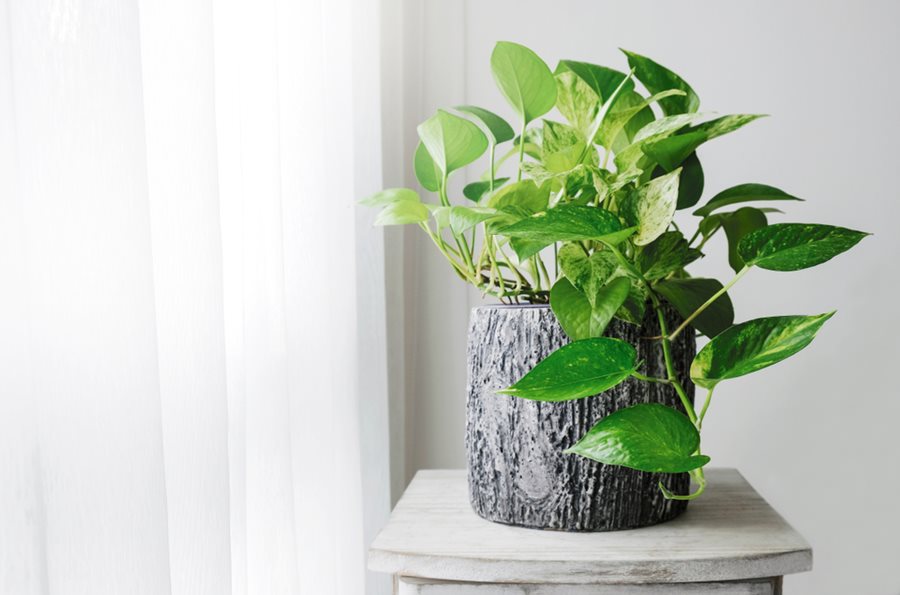
The golden pothos is a hearty plant that can be found at almost every nursery and home improvement store. These plants are super easy to care for, requiring almost no light and very little water – in fact, they are almost impossible to kill! But not only is the golden pothos low-maintenance enough for the most unexperienced plant owner, they purify the air and remove toxins like formaldehyde and carbon monoxide. Even though they do not require sunlight, place them near your bedroom window so that they can also filter out pollutants coming into your room from outside. Hanging baskets are the best way to display these beauties, and you can allow their trailing leaves to drape over a bookshelf or framed art.

